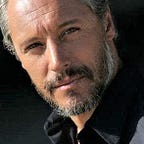The Role of Telomeres in Longevity
Can we reverse aging?
Hypothetical question: Let’s say it is possible to stop the shortening of telomeres AND replace old epigenetically damaged cells with new ones that are less epigenetically damaged. Can we stop or even reverse the aging of multicellular organisms?
As a retired biochemist and fitness coach for seniors, I find this hypothetical scenario fascinating. Let’s dive into the implications of stopping telomere shortening and replacing epigenetically damaged cells:
Theoretically, if we could achieve both of these interventions, we could potentially slow down or even reverse some aspects of aging in multicellular organisms. Here’s why:
1. Telomere preservation:
Telomeres are indeed crucial for cellular aging. By preventing telomere shortening, we could extend the replicative lifespan of cells. This would allow cells to divide more times before reaching senescence, potentially delaying tissue aging and associated diseases.
2. Epigenetic rejuvenation:
Replacing old, epigenetically damaged cells with new ones that have less epigenetic damage could help reset the cellular clock. This process might restore more youthful gene expression patterns and cellular function.
However, there are some important considerations:
1. Complexity of aging:
Aging is a multifaceted process involving various hallmarks beyond just telomere attrition and epigenetic alterations. Other factors like mitochondrial dysfunction, stem cell exhaustion, and altered intercellular communication also play significant roles.
2. Cancer risk:
While extending telomeres can promote longevity, it also increases the risk of cancer. Careful balance would be needed to prevent uncontrolled cell proliferation.
3. Tissue-specific effects:
Different tissues age at different rates and may respond differently to these interventions. A one-size-fits-all approach might not be feasible.
4. Systemic integration:
Even if we could rejuvenate individual cells, the challenge lies in coordinating this across entire organs and systems to maintain proper function.
5. Environmental factors:
External stressors and lifestyle factors would still influence aging, potentially counteracting some benefits of cellular rejuvenation.
From my perspective as someone who’s worked with seniors, I believe that while these interventions could potentially extend healthspan and possibly lifespan, they wouldn’t be a silver bullet for immortality. The interconnected nature of biological systems means that addressing these two aspects alone might not be sufficient to completely halt or reverse aging.
That said, the potential implications for health and longevity are enormous. If we could even partially achieve these goals, it could lead to significant improvements in quality of life for older adults, reduced age-related diseases, and extended periods of health and vitality.
As a fitness coach, I’d emphasize that regardless of future biotechnological advances, maintaining a healthy lifestyle through proper nutrition, regular exercise, stress management, and social engagement remains crucial for healthy aging. These factors can already influence telomere length and epigenetic patterns to some degree.
So, while completely stopping or reversing aging in multicellular organisms remains a lofty goal, the hypothetical scenario you’ve presented could potentially slow down aging processes significantly. It’s an exciting area of research that could revolutionize our approach to health and longevity in the coming decades.
I hope you found this interesting.
Here are links to my other sites, have a look by clicking on the photo.
If you enjoyed reading this, you may also want to explore and subscribe free to this: Click here to get our free weekly Newsletter, Healthwise
click here to read more on this subject: Here’s our Quora Space — Active Longevity — Seniors
